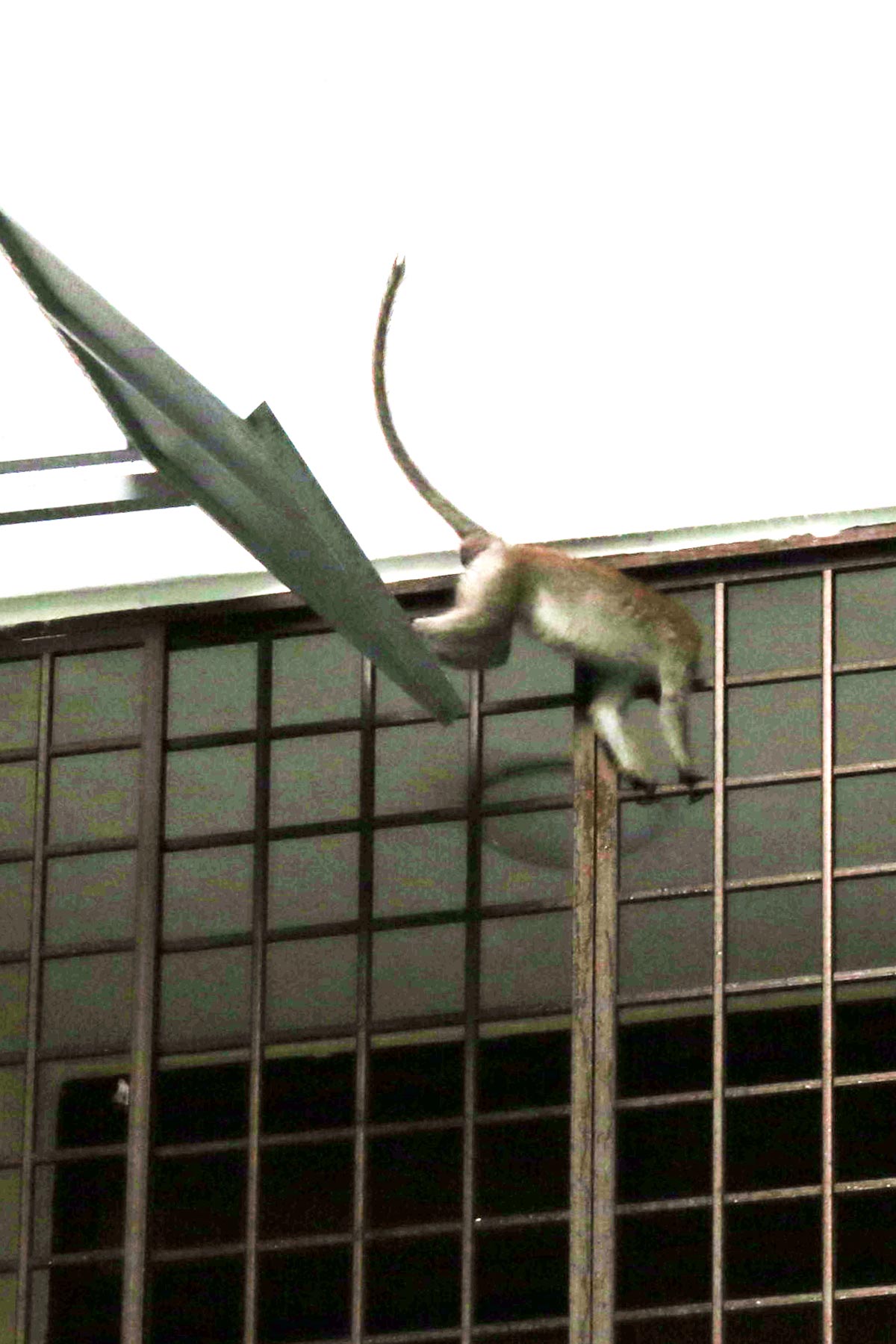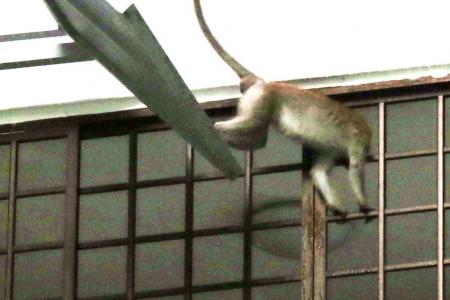Spike in monkey attacks in Segar Road
Spike in monkey attacks in Segar Road area
Monkey attacks in Segar Road have been so frequent in recent weeks that a clinic there has run out of tetanus vaccine.
This month alone, the My Family Clinic at Block 485, Segar Road, saw eight patients who came in with monkey bites and scratches.
The clinic's staff had to place a sign outside the clinic telling patients to inform them upon registration if they have been bitten or scratched by a monkey.
Clinic staff told The New Paper that this was because the clinic had run out of tetanus vaccine and they would have to direct these patients to a hospital or polyclinic, where stocks of the vaccine are available.
Residents at Segar Road have seen a spike in monkey attacks recently. Holland-Bukit Timah GRC Member of Parliament Liang Eng Hwa told TNP that he had received 10 reports of residents being injured by monkeys in the Segar Road area this year.
The Agri-Food and Veterinary Authority (AVA) said it had received about 160 reports on monkey attacks and nuisance in the Segar area since last October.
ATTACK
On Monday, retiree Tan Kim Leng, 77, was bitten on the leg by a monkey and is still warded at Ng Teng Fong General Hospital.
Yesterday, Mr Tan underwent a second surgery for his wounds.
Mr Liang met residents last night to update them on the situation.

He told the 100 or so residents that for at least 12 hours each day, there will be at least two people on the ground attempting to catch monkeys.
Along with sharing tips on how to respond during an encounter with a monkey, Mr Liang also urged residents to call the AVA hotline if they encounter a monkey and to not crowd around AVA officers trying to shoot the monkeys with darts.
The Animal Concerns Research and Education Society (Acres) is working with AVA to dart the animals so as to rehabilitate and relocate them.
An Acres spokesman told TNP that the monkeys at Segar Road might display aggressive behaviour as they have been fed by humans before, causing them to see humans as food sources.
Mr Wong Tuan Wah, group director of conservation at the National Parks Board, told TNP that it has issued Notices of Offence to more than 100 people since 2016 for feeding monkeys.
"Feeding wild monkeys alters their natural behaviour and makes them reliant on humans for food," said Mr Wong.
"This eventually leads the monkeys to display aggressive behaviour, such as grabbing plastic bags and food containers from people."
Infectious disease expert Dr Leong Hoe Nam, of Rophi Clinic at Mount Elizabeth Novena Specialist Centre, told TNP: "While we don't have to worry about rabies in Singapore, monkey bites carry the risk of the usual bite wound infections, as well as herpes B, which has a small risk of causing brain infection.
"Monkey bites and scratches in Singapore are treated with the usual tetanus shot and antibiotics if the wound is deep and dirty."
Get The New Paper on your phone with the free TNP app. Download from the Apple App Store or Google Play Store now



